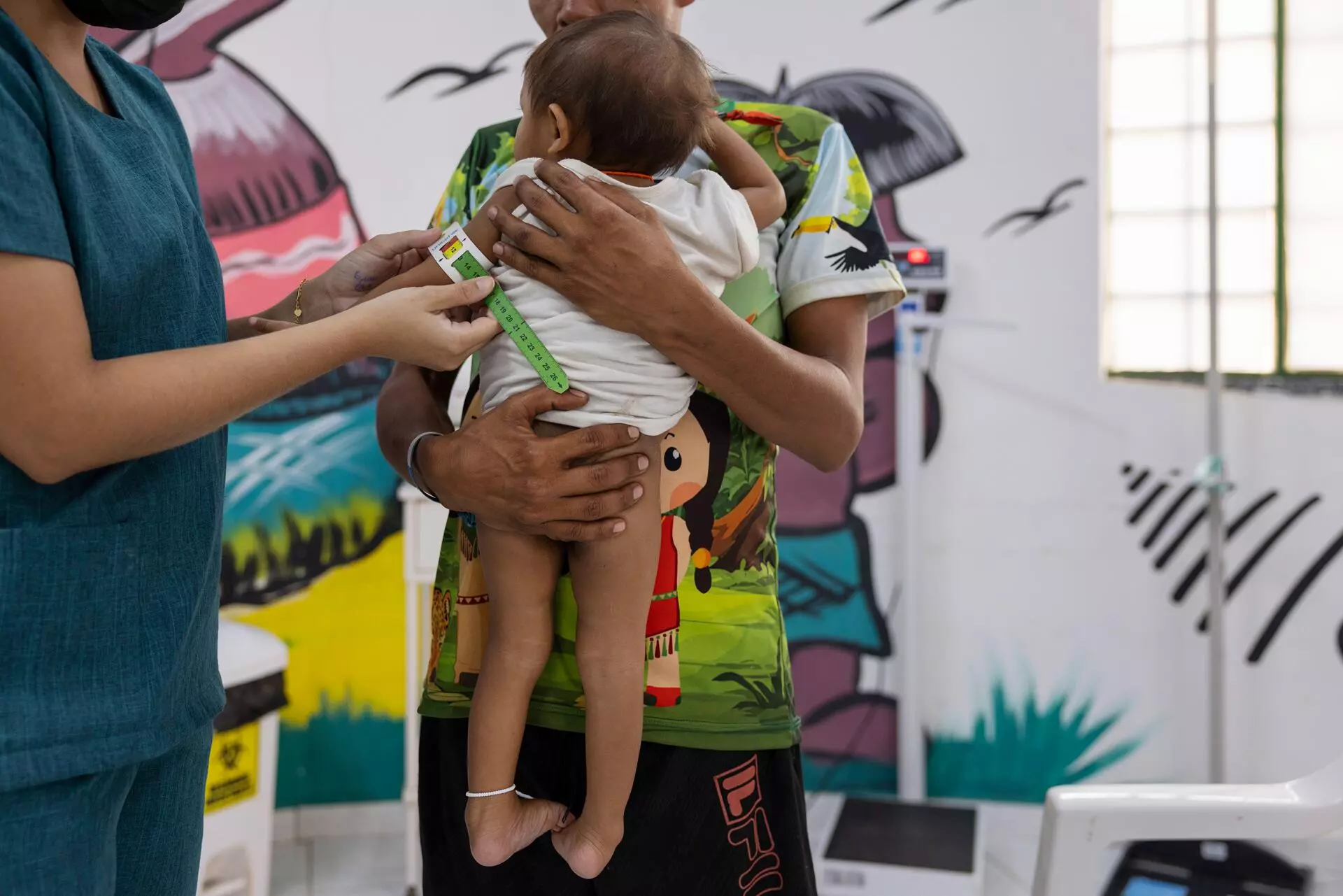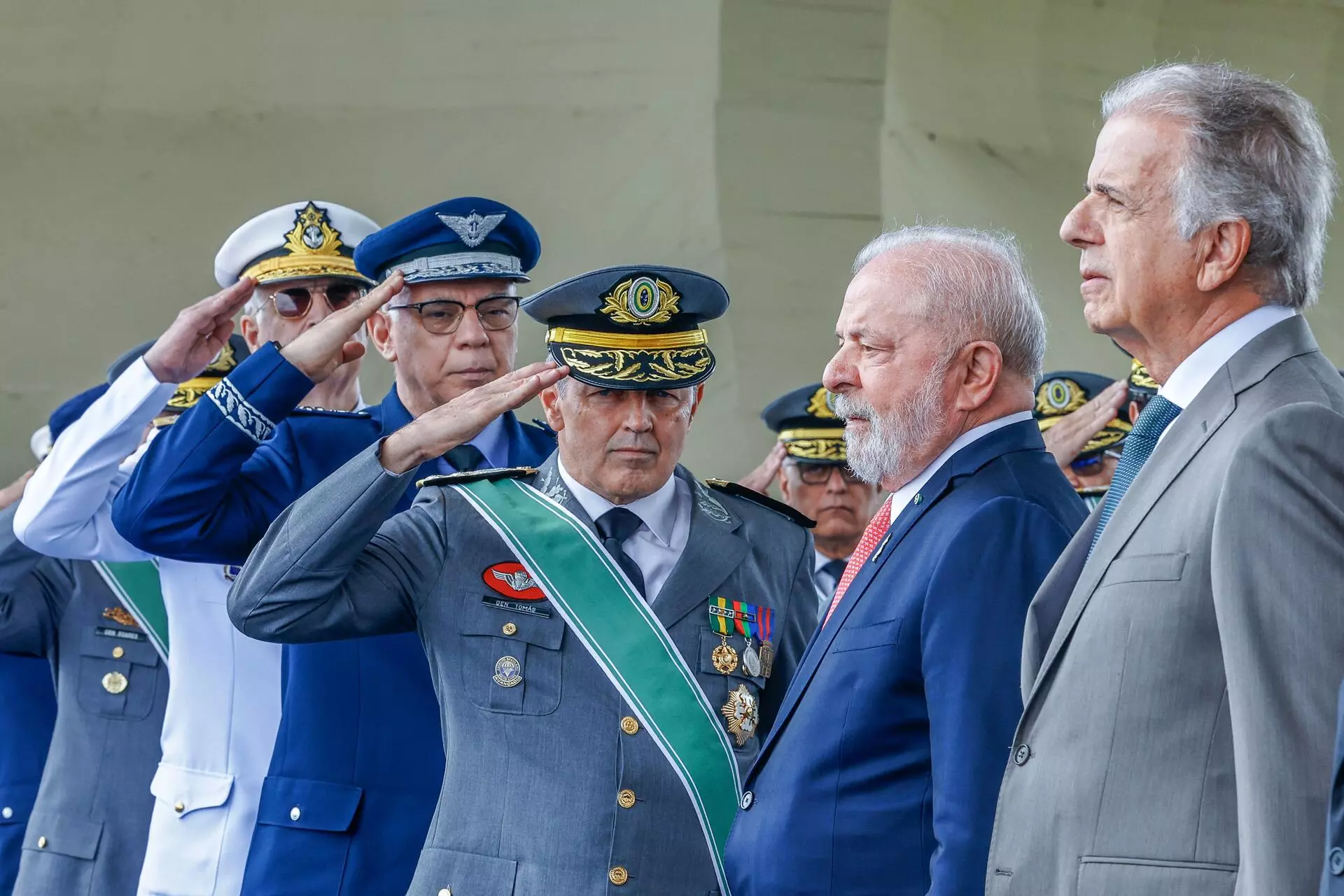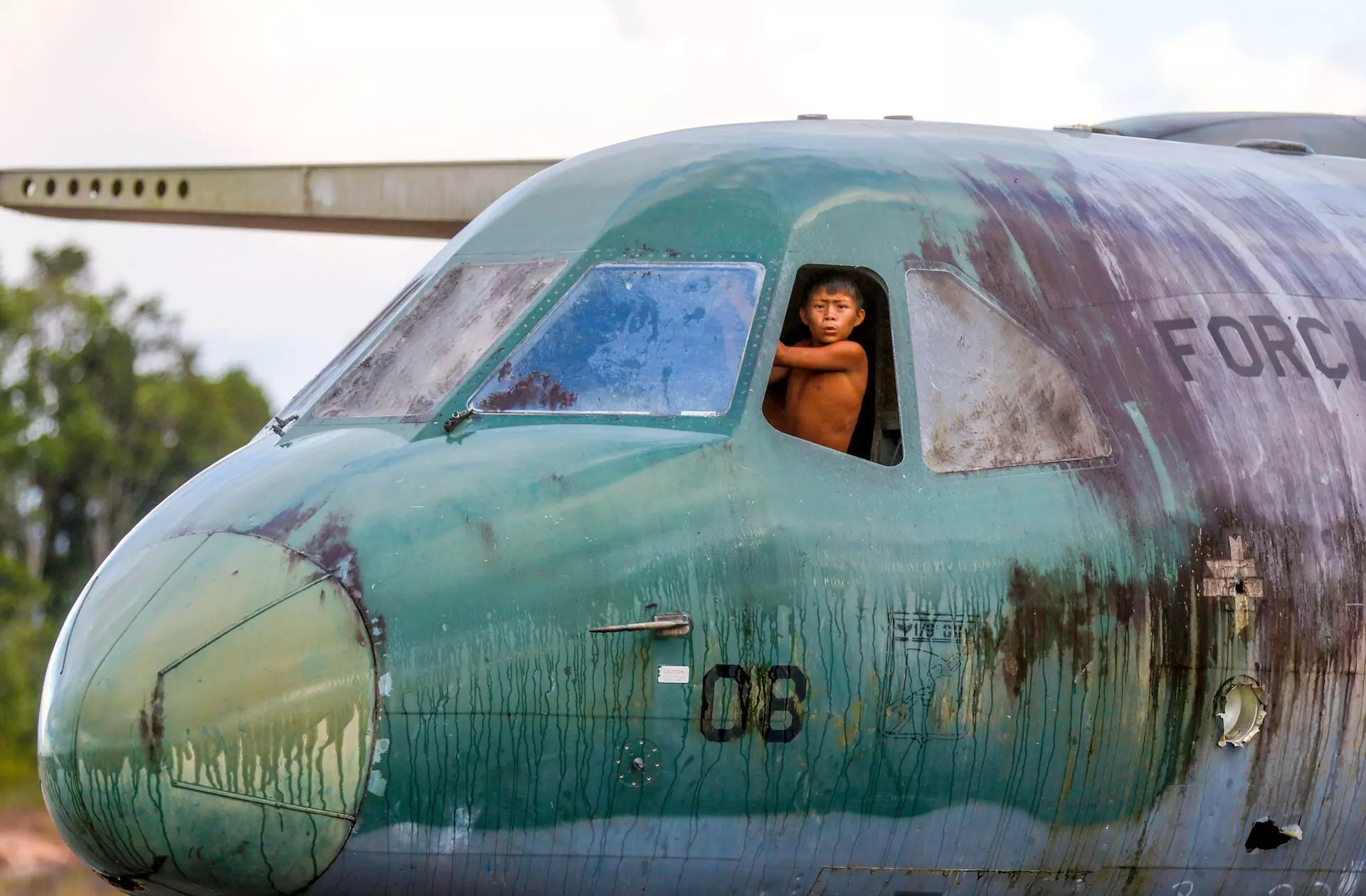One year ago, SUMAÚMA revealed to the world that 570 children under the age of five had died of preventable causes in the four years that President Jair Bolsonaro (Liberal Party) was in office, from 2019 to 2022. We also showed that a genocide was underway. The next day, President Luiz Inácio Lula da Silva (Workers’ Party) flew to Boa Vista, the capital of Roraima, accompanied by an entourage of cabinet ministers, where they observed the situation up close and, with this gesture, demonstrated that there was a government, that it was present, and that it was concerned about the Indigenous population. It was a truly democratic president’s first month in power, following four years of a right-wing extremist who ran a hate factory meant to divide the population, while also encouraging the invasion of Indigenous lands and conservation units by illegal miners, loggers, and land grabbers, whom he disingenuously called “farmers, rural producers, good men.” As facts and statistics have proven, Bolsonaro pushed the Amazon closer to the point of no return and escalated to the level of genocide the critical public health situation of the Yanomami population, already manifest under previous administrations. Lula declared a public health emergency, and Brazil and the world breathed a sigh of relief.
One year later, however, after rigorous investigation, it is with great sorrow that SUMAÚMA must report that although the Lula administration spent at least $200 million and dispatched nearly 2,000 healthcare professionals to Yanomami Indigenous Territory in 2023—displaying the political will to solve the problem—the government failed to definitively expel the illegal miners, some of whom have ties to organized crime, and also failed to significantly reduce the rates of disease and death. Lula acknowledged this reality when he summoned his cabinet on January 9, 2024, to declare: “We’re going to decide to address the Roraima matter, the Indigenous matter, and the Yanomami matter as matters of state. […] This meeting now is to define once and for all what our government is going to do to prevent Brazil’s Indigenous people from continuing to be the victims of a massacre.”

A malnourished Yanomami child receives medical care at the Indigenous Health Support House, in Boa Vista, capital of Roraima. Photo: Lalo de Almeida/Folhapress
It is important for a president to take action and reinforce principles and commitments. But there is a disturbing sense that we have gone back in time a year, because all of this had already been stated and promised. The Yanomami—and all Indigenous peoples—have always been matters of state, as set out in the Brazilian constitution. This isn’t something that can be “decided.” And circling back a year later to define, “once and for all,” what the government will do to address a public health disaster in which people are dying is problematic, from an ethical perspective.
Lula has plainly pinned the blame for this failure on a very difficult war against illegal mining, the same route taken by government communication channels in hopes of minimizing, in the eyes of the press and public opinion, the onus of having failed to confront a genocide. At no time did the administration acknowledge or assess—at least not publicly—the mistakes made in managing health operations in the territory, which were conducted by the Health Ministry’s Yanomami Center for Emergency Health Operations, set up early last year. The public deserves to have a transparent understanding of what happened. Without acknowledging and reviewing the mistakes and challenges that took a toll in human lives—and continue to take a toll—it is impossible to ensure the effectiveness of future initiatives.
Nor has any mention been made of the Armed Forces’ patent responsibility in the failure to expel the miners. It is as if the government were hostage to men in uniform—illustrated by the fact that none of the military top brass were held accountable for their part in the attempted coup d’état on January 8, 2023. Either the Armed Forces fulfill their constitutional function, which subordinates them to the government, or Brazil remains in a state of coup. In the case of the Yanomami, the Armed Forces acted with dangerous autonomy when they played a decisive role both in allowing some miners to remain in the territory and then in allowing the return of those who had left or had been driven out during operations by Brazil’s environmental protection agency Ibama. It is important to recognize that Ibama—with fewer human, material, and structural resources than are needed—performed its duties competently.

Armed Forces commanders, harshly criticized for their omission in the Yanomami genocide, salute President Lula in April 2023. Photo: Ricardo Stuckert/Presidência Brasileira/AFP
When cabinet ministers once again traveled to the state of Roraima to witness the Yanomami people’s dire situation, the absence of Health Minister Nísia Trindade and Defense Minister Múcio Monteiro spoke volumes. The provision of health care that guarantees an end to malnourishment, preventable diseases, and deaths is viscerally tied to the end of illegal mining in Indigenous lands.
For an in-depth investigation in this issue, SUMAÚMA spoke to Indigenous leaders and healthcare professionals who worked in Yanomami territory as part of the government’s task force, so we could tell the public why the task force failed despite its evident good intentions. The picture that emerges from reports by individuals with recognized qualifications in their areas is, on the one hand, that the task force did not have adequate knowledge about how to operate in the field during a public health emergency—the kind of work that demands a great deal of expertise and previous experience in real-life situations. On the other hand, these testimonies reveal how extremely hard the government apparently found it to listen to people with vast experience working with the Yanomami population and carrying out emergency operations.
In an interview in this issue, the physician Claudio Esteves de Oliveira—co-creator and co-manager of what was inarguably the most successful disease-control operation in Yanomami territory, conducted from the late 1990s through the early 2000s—neatly sums up the explosive combination that seemingly led to the government’s failure in the health care arena: “Arrogance is the mother of ignorance: the government eschewed accumulated experience with the Yanomani.” In another article, the geographer Estevão Benfica Senra, who has worked with the Yanomami population for more than a decade, precisely dissects the reasons for the failures: “I trust that President Lula, given what he saw in the state of Roraima [in early 2023], has been truly moved by the Yanomami plight. But, as we know, the road to hell is paved with good intentions. It is not enough to want to change a situation; you at least have to get to know it. Particularly a situation as complex as the one in YIT [Yanomami Indigenous Territory].”
It should also be remembered that Lula and the Workers’ Party have had a complicated relationship with Indigenous health NGOs right from his first term in office. It was Lula’s administration that dismantled the successful healthcare services in Yanomami territory in the early 2000s and, in response to pressure from politicians such as Romero Jucá (Brazilian Democratic Movement), went back to rely on Brazil’s National Health Foundation. To justify the unjustifiable, suspicions were cast on NGOs such as Urihi Saúde Yanomami. For readers to fully comprehend this disgraceful chapter in Brazilian history, in this issue we are republishing a special SUMAÚMA report from the first half of 2023. Since this change to the system, Yanomami health care has gone downhill. When Bolsonaro took office, with his plan to open up protected land in the Amazon to predatory exploitation for private profit, he merely had to abandon the assistance then being provided at an already negligible level—notwithstanding the heroic efforts of healthcare workers in the field, who fought against poor conditions and a lack of resources. With the right-wing extremist encouraging miners to invade the Indigenous territory, genocide was set in motion.
Independent, rigorous, and accurate journalism usually displeases many people. In a highly polarized country—like Brazil and a good share of the world’s nations today—people only like quality journalism when it exposes the opposing side’s problems. Or when they agree with the opinions expressed. SUMAÚMA has to contend with this common attitude. We work under the weight of responsibility felt by those who realize the press is crucial in a democracy and that its commitment is to uncover facts and restore the truth, regardless of who is in power or of our personal political choices.
Journalism is essential for the social control of governments—and without social control, there is no democracy. An effectively democratic government understands this, because this kind of control helps enhance its actions, and good government is—or should be—the ultimate goal of those in power. The same holds true for a people effectively committed to democracy, a people whose personal passions do not prevent them from seeing the facts and being driven by the truth. I have opened this parenthesis because it is obvious from the most aggressive comments we receive—and which sometimes present a danger, because SUMAÚMA is based in a high-risk region—the entire ideological spectrum finds the quest for truth uncomfortable.
When Environment and Climate Change Minister Marina Silva was in Roraima, along with other ministers who were part of this January’s delegation, she emphasized the administration’s commitment to reality and transparency—and not to self-delusion. This is a fundamental commitment that should extend across the whole government—and should inspire activists.
As stated in SUMAÚMA’s founding manifesto, we will continue doing the very best journalism to contribute to the enhancement and expansion of democracy and the protection of nature and its peoples. We rely on critical feedback from our readers to keep us on the right track. We hope this first issue of 2024 unequivocally demonstrates the depth of our commitment.
The 308 Yanomami people who died in 11 months, over half of whom were children under the age of five, are not numbers. They had dreams, desires, emotions, smiles—lives. No one can ever make up for their loss. It is in their names that we must keep our eyes wide open, so the government will get it right this year, since the only thing to do now is acknowledged losses, understand the mistakes, and take every precaution to prevent a repeat. “Not one fewer Yanomami” should be the commitment of global society, which has an unpayable debt to its native peoples.
Let the reading be honest—and may we do better in 2024.
Proofreader (Portuguese): Valquíria Della Pozza
Spanish translation: Meritxell Almarza
English translation: Diane Whitty
Photo Editor: Lela Beltrão
Layout and finishing: Érica Saboya
Editors: Viviane Zandonadi (editorial workflow and copy editing), and Talita Bedinelli (coordination)
Director: Eliane Brum

A Yanomami child plays in the cockpit of a plane on the precarious airstrip in Surucucu, one of the Army bases in Indigenous territory. Photo: Fernando Frazão/Agência Brasil





